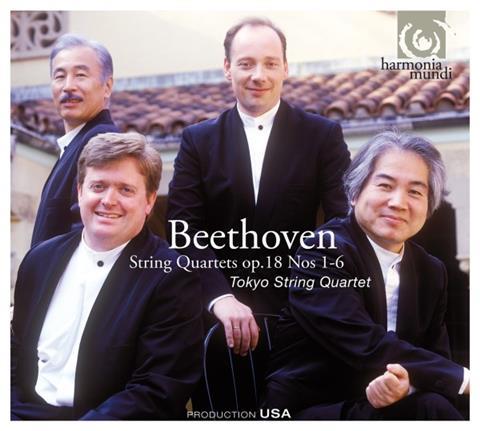
THE STRAD RECOMMENDS
The Strad Issue: January 2008
Musicians: Tokyo Quartet
Composer: Beethoven
Few ensembles exceed the high standards of the Tokyo Quartet. Its members here produce a sumptuous, beautifully blended sonority from their matching set of Stradivari instruments and perform with outstanding musical insight, unanimity and polish.
These players’ strongly projected readings maintain contact with the sensibility of Beethoven’s period and their understanding of the architecture of his music allows them to realise with utter conviction the key points and proportions of the various formal structures. Their account of the finale (‘La malincolia’) of no.6 is a particular example, fashioned with striking delicacy; their first movement of no.4 is powerfully dramatic without ever going into overdrive; and their variations in the Andante cantabile of no.5 are sharply contrasted and characterised.
Careful shaping and weighting of the line are passed effortlessly from one to the other, as in the passionate second movement of no.1 and the conversational counterpoint in the second movement of no.4, and expressive detail is naturally realised, particularly in these spacious, unhurried accounts of the other slow movements. Dynamic indications are scrupulously observed throughout, with the first movement of no.1, the scherzo of no.2 and an especially ghostly episode in the slow movement of no.6 being particularly striking.
Tempos are sensible and generally well judged, enabling these players to perform with striking vivacity and yet constantly to invest their accounts with imaginative musical detail, whether witty, dramatic or elegant. The finale of no.1, played at lightning speed, is exhilarating and the con moto feeling of the long-breathed melody of no.3’s Andante seems just right. The finales of nos.2, 3 and 4 have all the requisite energy and drive, evident also in the scherzos of, for example, nos.1, 4 and 6. Apart from one unfortunate typographical error in the booklet notes, the presentation is first-class. The close recording is rich in sonority yet truthful.
ROBIN STOWELL
































No comments yet